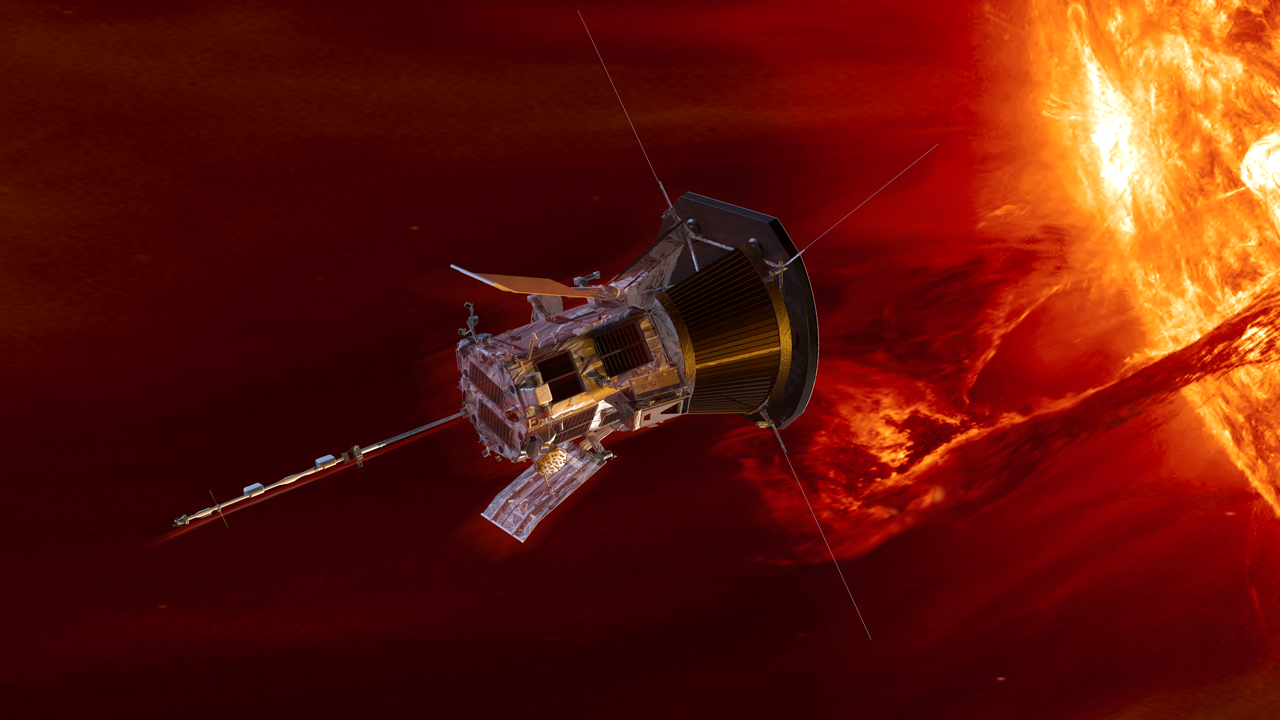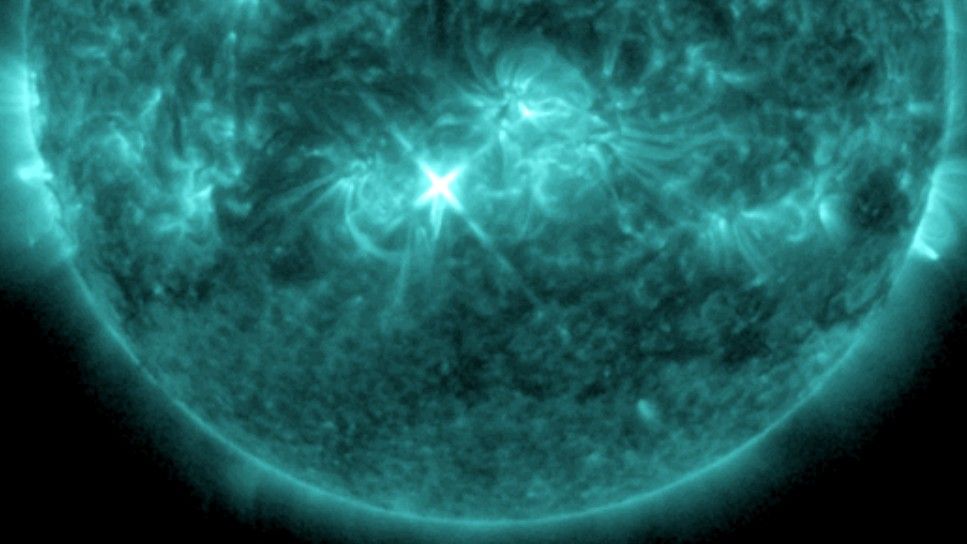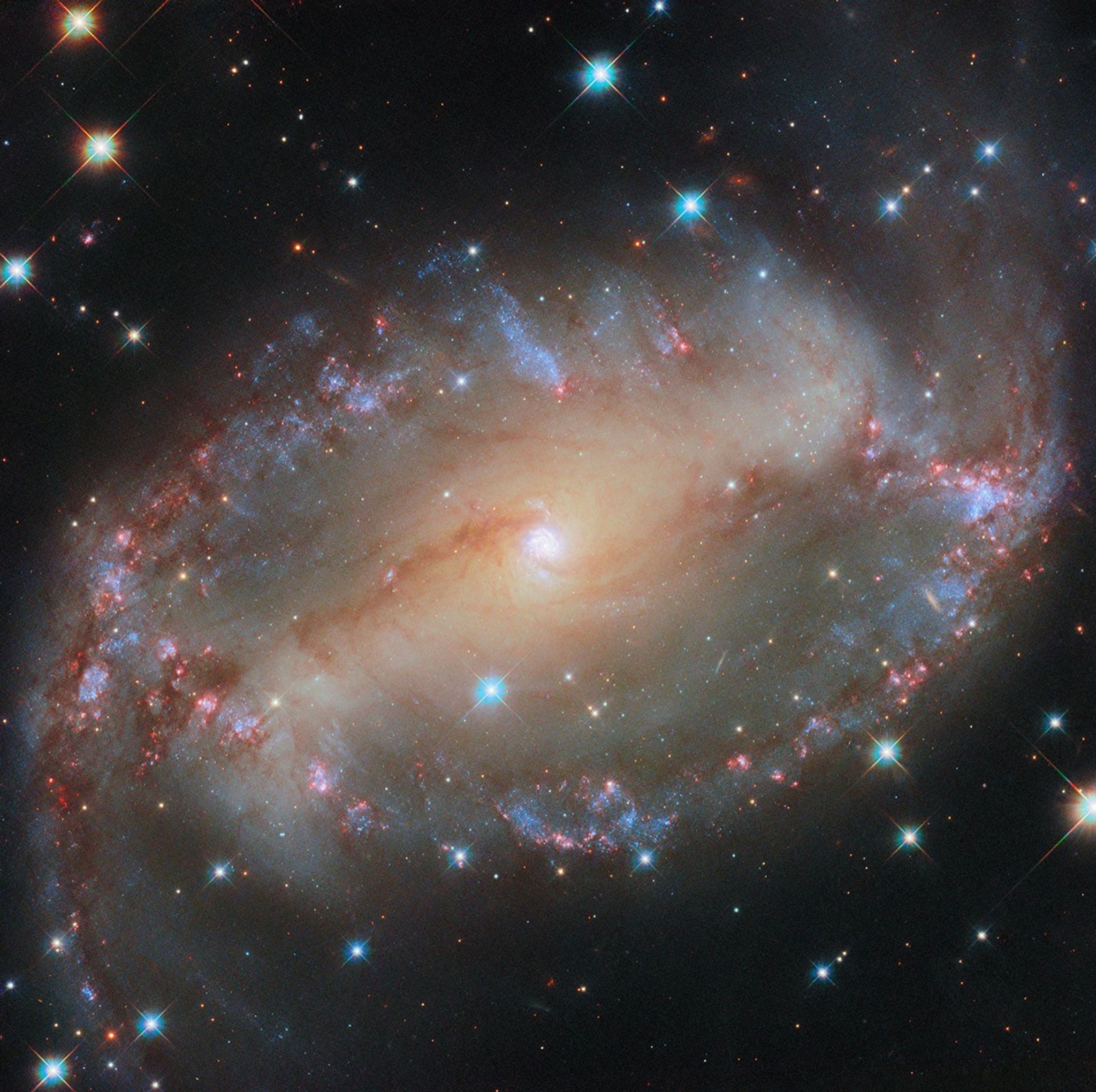5 Min Read NASA’s Parker Solar Probe Makes History With Closest Pass to Sun An artist’s concept showing Parker Solar Probe. Credits: NASA/APL Operations teams have confirmed NASA’s mission to “touch” the Sun survived its record-breaking closest approach to the solar surface on Dec. 24, 2024. Breaking its previous record by flying just 3.8 million miles above the surface of the Sun, NASA’s Parker Solar Probe hurtled through the solar atmosphere at a blazing 430,000 miles per hour — faster than any human-made object has ever moved. A beacon tone…
Read MoreMonth: December 2024
Christmas solar flares erupt from the sun. Will they trigger aurora ‘fireworks’ as we close out 2024?
In the final hours of Christmas Day, the sun fired off four solar flares within less than three hours. The biggest flare of the series, recorded at a M7.3, erupted from sunspot region AR3938 on Dec. 25 at 10:15 p,m. EST (0315 GMT on Dec. 26). Solar flares are ranked and categorized by their power on a 4-level classification scale, with M-class the second strongest to the beastly X-class at the top. According to Spaceweather.com, this was part of a group of four different flares that happened within two and…
Read MoreHubble Spies a Cosmic Eye
This NASA/ESA Hubble Space Telescope image features the spiral galaxy NGC 2566. ESA/NASA This NASA/ESA Hubble Space Telescope image features the spiral galaxy NGC 2566, which sits 76 million light-years away in the constellation Puppis. A prominent bar of stars stretches across the center of this galaxy, and spiral arms emerge from each end of the bar. Because NGC 2566 appears tilted from our perspective, its disk takes on an almond shape, giving the galaxy the appearance of a cosmic eye. As NGC 2566 appears to gaze at us, astronomers gaze right…
Read MoreHow to use monoculars for stargazing
Monoculars are basically a half pair of binoculars and can be a super compact way for you to enjoy stargazing wherever your travels take you. Because of their small size, monoculars are highly portable, meaning that you don’t have to worry about lagging a heavy telescope to a dark sky site to enjoy some skywatching. Monoculars use a lens and prism system to magnify an image for the user. They are great for beginner stargazers due to their simple operation: point your monocular at your subject, and look through it.…
Read MoreLego Marvel Avengers Helicarrier review
Essential info Price: $79.99/£69.99 Model number: 76295 Number of pieces: 509 Dimensions: 7 x 13 x 8.5 inches (18 x 33 x 22cm) Recommended age: 18+ It’s safe to say that the Lego Marvel Avengers Helicarrier won’t be finding a place in our list of the best Lego Marvel sets any time soon. It’s a real shame too: when the Helicarrier was first announced, I was very excited about it. I’d missed out on the huge Helicarrier when it retired in 2017, so getting another model of it — a…
Read More‘Silo’ scores a third and fourth season from Apple TV+
Apple TV+ has achieved a quiet confidence with its galaxy of science fiction programming over the past few years, bolstered by an impressive roster of compelling series such as “Foundation,” “Invasion,” “For All Mankind,” “Hello, Tomorrow!,” and the most recent must-watch endeavor, “Silo.” This past week, fans were thrilled to hear the fantastic pre-holiday news that Apple TV+ has shown its boundless confidence in the show’s future by ordering up not just one, but two more seasons to finish out its extraordinary survival saga. Now mid-way through its second season…
Read MoreScientists await signal from NASA’s Parker Solar Probe after historic close sun flyby. Will it phone home?
On the heels of a NASA spacecraft’s historic close flyby of the sun on Christmas Eve, scientists on Earth have one question on their minds: Did their probe survive as an epic Christmas gift, or is it a burned up lump of coal in space? For a few days, they simply won’t know, at least not until the spacecraft — NASA’s Parker Solar Probe — phones home with a simple “status beacon” on Friday (Dec. 27) to let its science team know it’s okay. But scientists behind the spacecraft’s sun…
Read MoreJust a fraction of the hydrogen hidden beneath Earth’s surface could power Earth for 200 years, scientists find
A mountain of hydrogen is lurking beneath Earth’s surface — and scientists say that just a fraction of it could break our dependence on fossil fuels for 200 years. New research suggests the planet holds around 6.2 trillion tons (5.6 trillion metric tons) of hydrogen in rocks and underground reservoirs. That’s roughly 26 times the amount of oil known to be left in the ground (1.6 trillion barrels, each weighing approximately 0.15 tons) — but where these hydrogen stocks are located remains unknown. Most of the hydrogen is likely too…
Read MoreNASA Runs X-59 Engine in Maximum Afterburner
NASA’s X-59 quiet supersonic research aircraft completed its first maximum afterburner test at Lockheed Martin’s Skunk Works facility in Palmdale, California. This full-power test, during which the engine generates additional thrust, validates the additional power needed for meeting the testing conditions of the aircraft. The X-59 is the centerpiece of NASA’s Quesst mission, which aims to overcome a major barrier to supersonic flight over land by reducing the noise of sonic booms.
Read MoreMechanical Systems TDT Support Reaches Across NASA Programs
The NESC Mechanical Systems TDT provides broad support across NASA’s mission directorates. We are a diverse group representing a variety of sub-disciplines including bearings, gears, metrology, lubrication and tribology, mechanism design, analysis and testing, fastening systems, valve engineering, actuator engineering, pyrotechnics, mechatronics, and motor controls. In addition to providing technical support, theTDT owns and maintains NASA-STD-5017, “Design and Development Requirements for Space Mechanisms.” Mentoring the Next GenerationThe NESC Mechanical Systems TDT actively participates in the Structures, Loads & Dynamics, Materials, and Mechanical Systems (SLAMS) Early Career Forum that mentors early-career…
Read More





